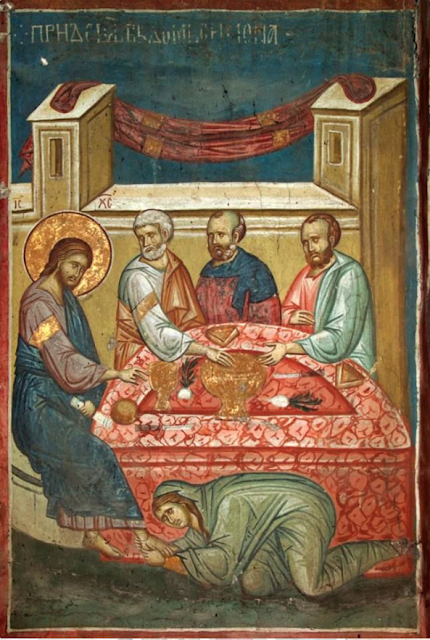Journey of Grace: Reflections on the Sinner Woman in the Third Gospel

The narrative of the sinner woman in the third gospel extends beyond the surface, delving into profound aspects of spirituality and human nature. One key aspect is the notion that Jesus gives us the space and time to draw closer to him. The sinner woman’s unreserved approach to Jesus demonstrates a vulnerability that is met with understanding rather than condemnation. This challenges me to consider whether I am truly taking advantage of the space and time that Jesus affords me in my own spiritual journey. Do I approach him with honesty and vulnerability, acknowledging my shortcomings and seeking his transformative grace? Or I’m constantly focusing on my earthly needs? The need to perform better at work, to be successful in my life?
As I keep thinking about this episode, the question of self-awareness emerges as a central theme in this reflection. The sinner woman recognized her need for forgiveness and redemption, prompting her sincere act of repentance. This prompts me to ask myself: Do I truly know my own sin? Am I willing to confront the areas of my life that need healing and transformation? The woman’s example encourages introspection, urging me to approach God with authenticity and a genuine desire for renewal.
The internal monologue of the Pharisee in the narrative adds another layer to the reflection. While the Pharisee silently judges both Jesus and the woman, it leads me to consider my own internal dialogue. What judgments do I hold in my heart? Am I quick to categorize others based on outward appearances or societal labels? The narrative challenges me to examine my own thoughts and attitudes, fostering a spirit of humility and openness rather than self-righteousness.
Jesus’ command to Simon to view the woman with compassionate eyes rather than the other man who looked at her with lust introduces a powerful contrast. It prompts me to reflect on my own gaze towards others. Am I quick to judge or objectify, or do I strive to see others with the compassionate eyes that Jesus encourages? The call to compassionate viewing challenges me to look beyond surface-level judgments and embrace a perspective rooted in empathy and understanding.
The contrast between Simon, the Pharisee who invited Jesus but remained at a safe distance, and the sinful woman is particularly striking. Simon attempted to play it safe, adhering to social norms and expectations, yet his heart remained distant. In contrast, the sinful woman approached Jesus with abandon, risking societal scorn for the sake of encountering grace. This challenges me to reflect on my own approach to faith. Am I playing it safe, maintaining a comfortable distance from the radical demands of discipleship? Or am I willing to take the risk, stepping into the vulnerable space of authentic encounter with the divine?
In contemplating these aspects of the narrative, the story of the sinner woman becomes a rich tapestry of spiritual reflection. It prompts me to embrace vulnerability, cultivate self-awareness, and approach others with the compassionate gaze that Jesus exemplifies. The contrast between playing it safe and risking it all for the sake of encountering grace serves as a profound invitation to reassess the depth and authenticity of my own spiritual journey.
The reflection above was inspired by the catechesis delivered at the MSSP Oratory by Fr Giovann Tabone mssp.